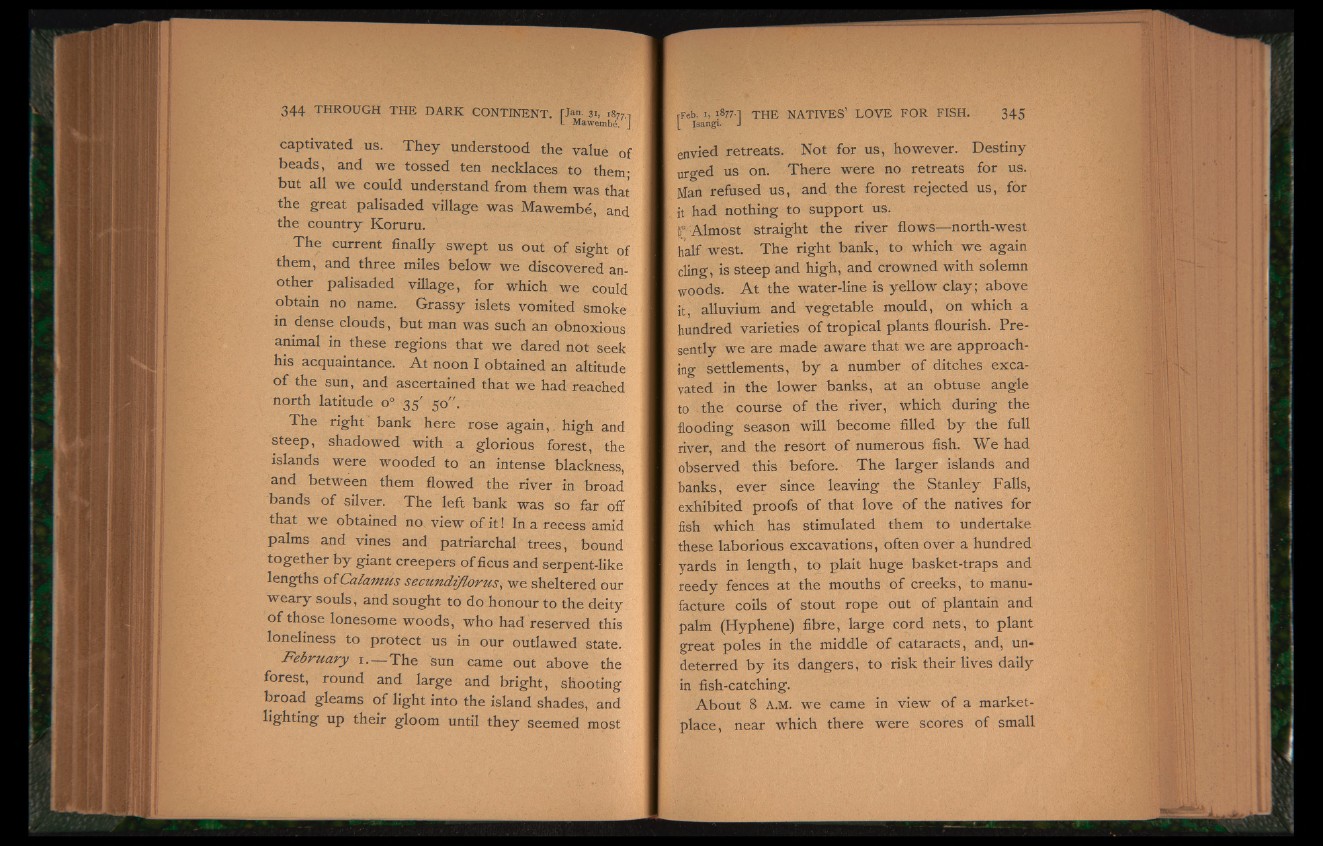
captivated us. They understood the value of
beads, and we tossed ten necklaces to them-
but all we could understand from them was that
the great palisaded village was Mawembe, and
the country Koruru.
The current finally swept us out of sight of
them, and three miles below we discovered another
palisaded village, for which we could
obtain no name. Grassy islets vomited smoke
in dense clouds, but man was such an obnoxious
animal in these regions that we dared not seek
his acquaintance. At noon I obtained an altitude
of the sun, and ascertained that we had reached
north latitude o° 35' 50".
The right'bank here rose again,. high and
steep, shadowed with a glorious forest, the
islands were wooded to an intense blackness,
and between them flowed the river in broad
bands of silver. The left bank was so far off
that we obtained no view of it! In a recess amid
palms and vines and patriarchal trees, bound
together by giant creepers of ficus and serpent-like
lengths of Calamus secundzflorus, we sheltered our
weary souls, and sought to do honour to the deity
of those lonesome woods, who had reserved this
loneliness to protect us in our outlawed state.
February 1.— The sun came out above the
forest, round and large and bright, shooting
broad gleams of light into the island shades, and
lighting up their gloom until they seemed most
rFeb. I, 1877.-1 t h e n a t i v e s ’ l o v e f o r f is h . 345
[ Isangi. J
envied retreats. Not for us, however. Destiny
urged us on. There were no retreats for us.
Man refused us, and the forest rejected us, for
it had nothing to support us.
f Almost straight the river flows— north-west
half west. The right bank, to which we again
cling, is steep and high, and crowned with solemn
woods. At the water-line is yellow clay; above
it, alluvium and vegetable mould, on which a
hundred varieties of tropical plants flourish. Presently
we are made aware that we are approaching
settlements, by a number of ditches excavated
in the lower banks, at an obtuse angle
to the course of the river, which during the
flooding season will become filled by the full
river, and the resort of numerous fish. We had
observed this before. The larger islands and
banks, ever since leaving the Stanley Falls,
exhibited proofs of that love of the natives for
fish which has stimulated them to undertake
these laborious excavations, often over a hundred
yards in length, to plait huge basket-traps and
reedy fences at the mouths of creeks, to manufacture
coils of stout rope out of plantain and
palm (Hyphene) fibre, large cord nets, to plant
great poles in the middle of cataracts, and, undeterred
by its dangers, to risk their lives daily
in fish-catching.
About 8 A.M. we came in view of a marketplace,
near which there were scores of small